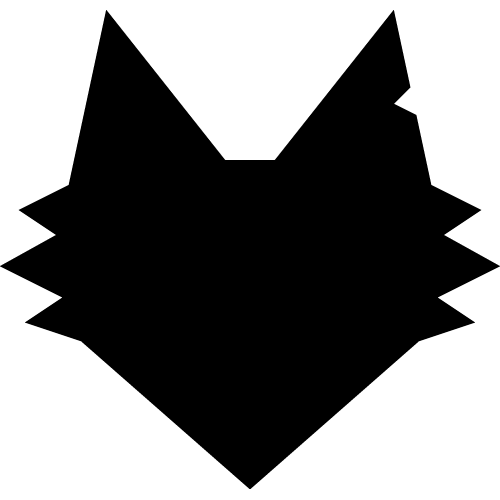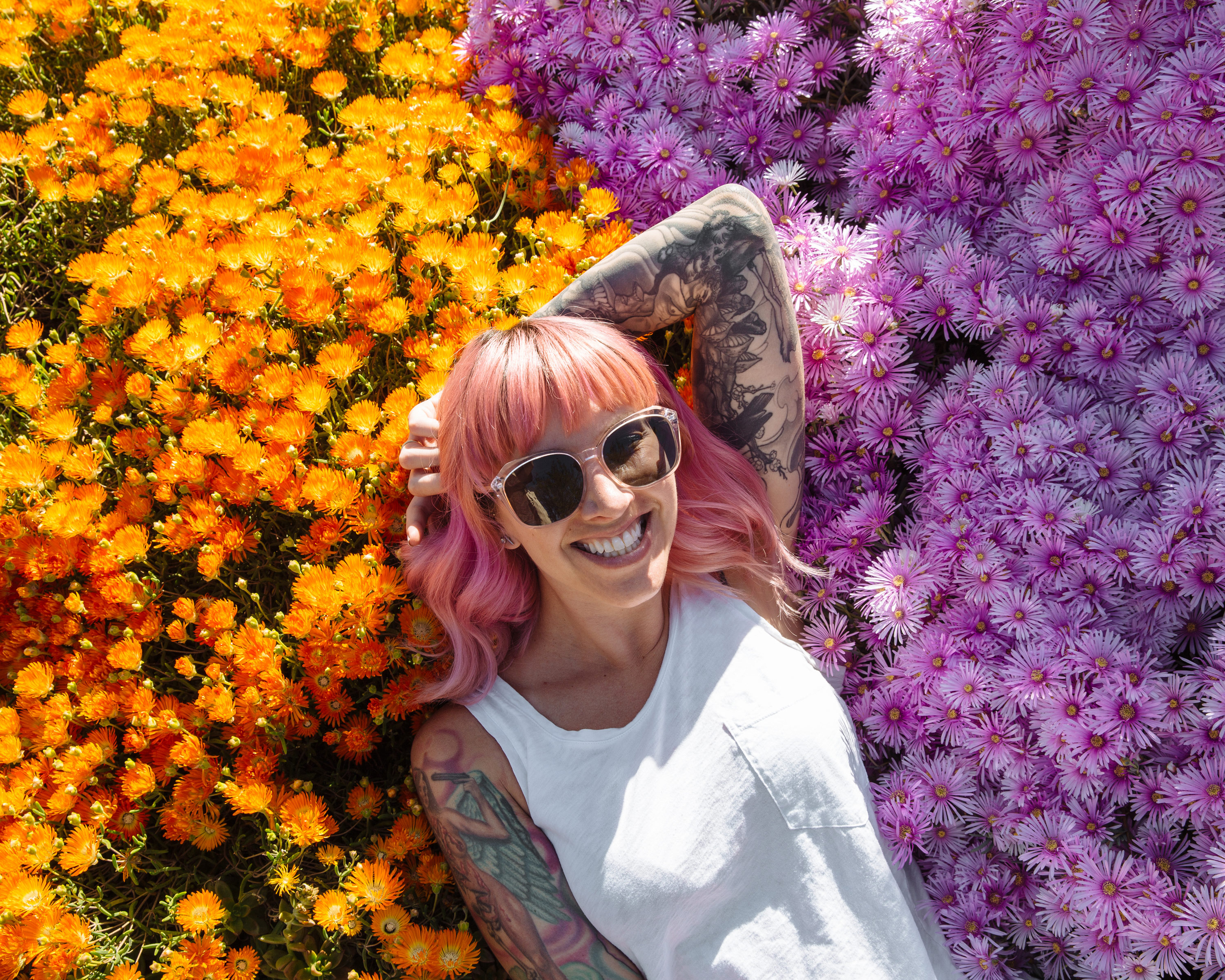
- Interview by Tina Essmaker April 18, 2017
- Photo by Lauren Randolph
Jessica Zollman
- photographer
LA-based photographer Jessica Zollman, aka Jayzombie, recalls her love of photography that started in childhood with her father’s obsession over taking pictures. After her dad unexpectedly passed away, her path eventually led her full-circle back to her first love of shooting, with stops along the way, like studying music business and serving as Instagram’s community manager and fifth employee. Here, Jessica opens up about how vulnerability plays into her creativity, the importance of self-care, and the challenges and rewards of turning her passion project into her full-time gig.
Tell me about where you grew up and how your childhood influenced your ideas about creativity. I was born in Detroit, MI. My mom is Canadian and her side of the family is from Toronto. My dad grew up in a suburb outside of Chicago, so Detroit was in the middle between each set of grandparents. We lived in Detroit for three years and most of my memories are of my dad with a camera in front of his face. The photos from my childhood are of me and my mom—there are very few of me with my dad because my mom didn’t know what to do with a camera.
When I was four, we moved to California because my dad started a new business out there. Shortly after we moved, my dad was diagnosed with cancer and he passed away about three months later. The photos he took, and the photos of the two of us together, became super important to me. I remember obsessively looking through those photos over and over again—probably to recreate the timeline of a story I wasn’t sure I would remember because I was so young when my dad passed.
After my dad passed away, I took a lot of pictures with those disposable Kodak film cameras. It was my way of making sure memories were still being captured. Those were my earliest memories of me being creative.
My dad had been an entrepreneur and my mom worked her ass off as a single parent. She’s not a creative person, but she has this drive and passion for family, which has been instilled in me as a result of being raised by pretty much the most badass single mom on the face of the earth.
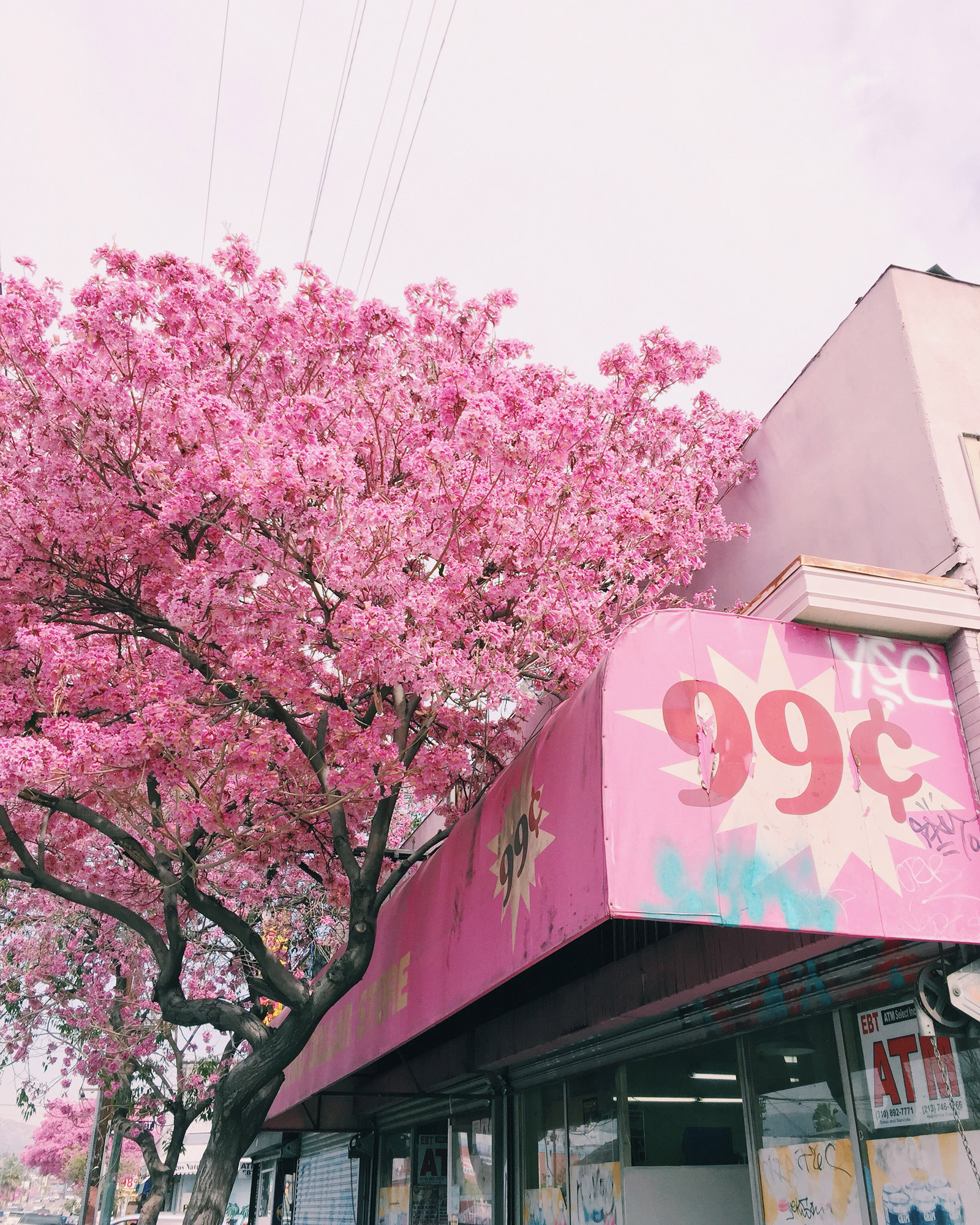
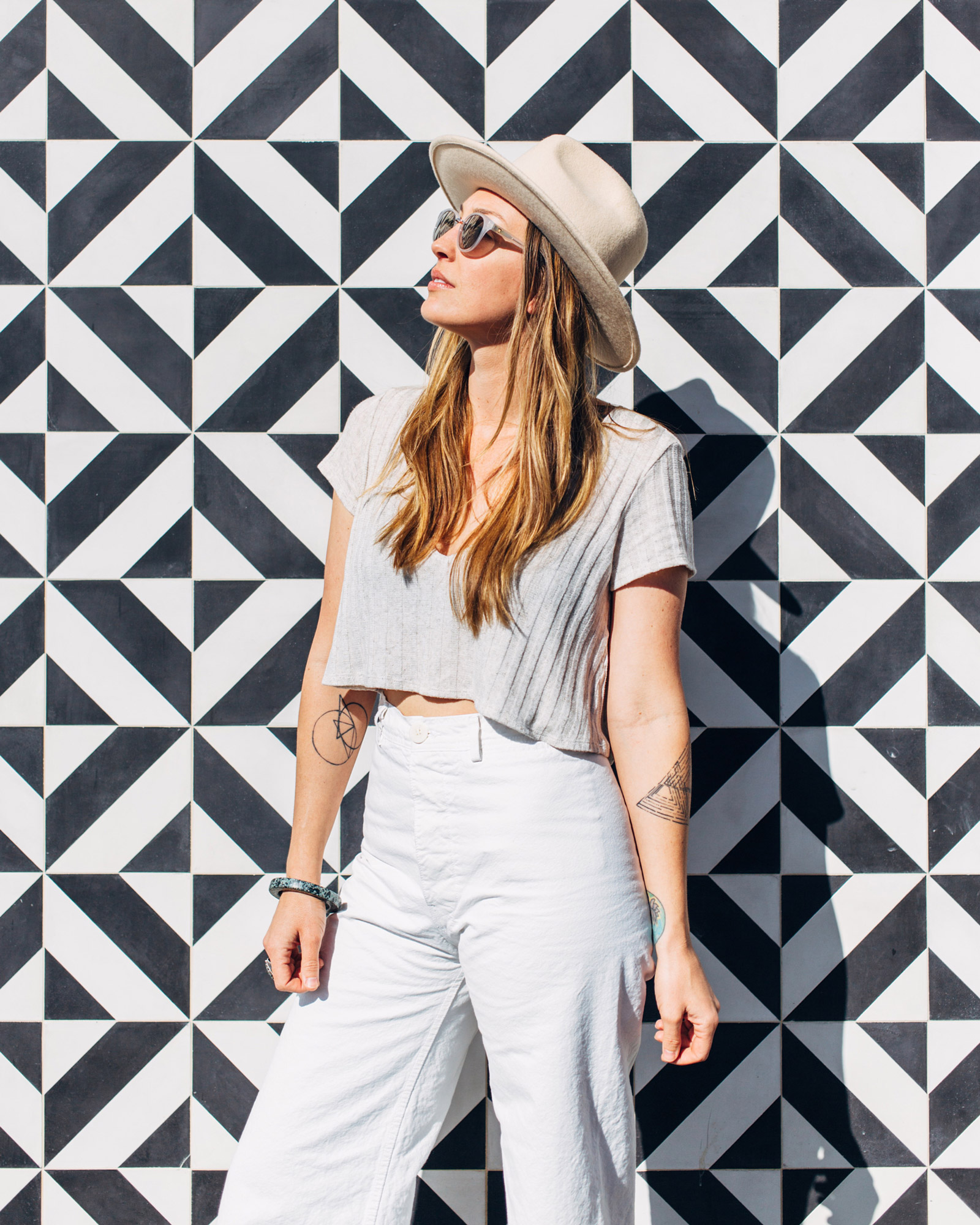
So you gravitated toward photography after your dad passed, but did you continue to embrace it as you grew older? I’m going to get personal and give context about why I’m asking. My mom died when I was ten and experiencing that trauma early on led me to believe that I needed to be practical so I could support myself. There was a tug of war between the pragmatic, self-sufficient part of me and the side that wanted to risk and do something creative. Is that something you wrestled with? I definitely wrestled with that. My mom did an incredible job of encouraging me to try a million different things. Before she settled into her current career, she was a seamstress, then an elementary school teacher, then she worked in the restaurant industry, and when we moved to California she got into meeting planning. She never raised me to think I could only be one thing. She encouraged me to live multiple lives and find out what I’m interested in, because that might change with age. She wanted me to explore.
I will say that I was put into therapy after my dad died, and being so young, I did a lot of drawing. I was in therapy from ages four to six, and it was all based around creativity. As a kid, it’s hard to communicate your feelings, so creativity was the best tool to do that. For me, expressing my creativity is absolutely therapeutic because that’s how I was raised and how I processed everything that happened in my life.
There was a period of my life where I rejected photos and hated photography during my teenage years. I didn’t even want photos of me to be taken. I had a bat mitzvah because my dad wanted me to be raised Jewish; my mom was not Jewish at the time. For me, it was a symbolic way of honoring my dad and I think it was important for it to be documented, but having my photo taken at that was traumatizing, and I could feel myself being torn apart emotionally.
I didn’t fully reject creativity, but in some ways I definitely did as I struggled with my grief. I was 17 before I picked up another camera and regained my passion for photography. That corresponded with my first more serious relationship, which I wanted to document, but it was a subconscious decision at the time.
When photography became a part of your life again, was it something you had considered making a living from? Not at all. That wasn’t until much later. At 17, I was still lost and confused. I didn’t know who I was.
I grew up in a town in the East Bay that’s extremely white, mostly upper middle class, and very Republican. There was something strange and unnerving about it. I embraced a lot weirder things, but on the surface I still fit into my neighborhood. I stayed at home and went to junior college first so I could save money to live in a different city.
Then I went to University of California, Santa Barbara. A couple of my friends went to Brooks Institute of Photography, but I majored in English. Again, I had no idea what I wanted to do. My emphasis was in theology, which meant I studied religious texts in addition to standard English courses. I think that came from my dad wanting me to be raised Jewish. In the Jewish faith, there is a lot of questioning, which is encouraged, and non-belief is as much a part of the culture as extreme and devout belief. I was fascinated by that and by my rabbi asking me to question God. I was curious and wanted to dive deeper, which led to studying religion.
My college graduation gift was a camera. I couldn’t tell you the model, but it wasn’t fancy. It was an entry-level DSLR. I was obsessed and took so many photos, but I still had no idea that photography would be my thing. As I started to find myself and went back to therapy as a 20-year-old to find meaning in the major life events that happened to me, my creativity continued to grow stronger and I was more willing to be vulnerable, which I think directly corresponds with me fully embracing being a creative for a living.
“My college graduation gift was a camera. I couldn’t tell you the model, but it wasn’t fancy. It was an entry-level DSLR. I was obsessed and took so many photos, but I still had no idea that photography would be my thing.”
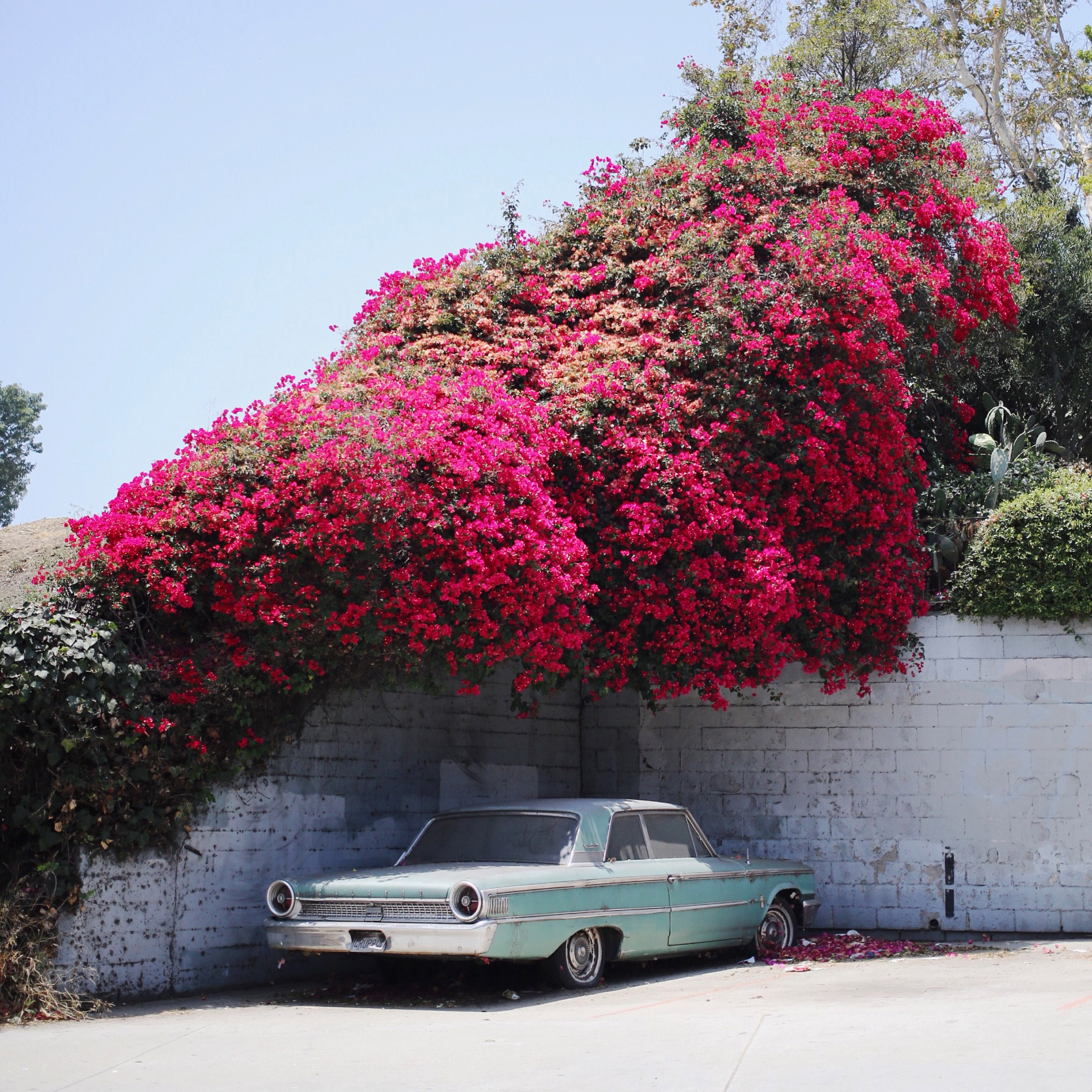
Tell me about the timeline after college. You got involved in the tech world and were the fifth employee at Instagram. What led up to that role? I moved back home after I graduated college and worked for my mom for a year. I got into a major car accident during that time, and I broke my nose in three places and deviated my septum. It was the best and worst timing ever. It was super traumatic and I had to get a septorhinoplasty. I really struggled with my identity after I was forced to have a nose job. I had a stronger nose before thanks to my extremely Jewish father, and I came out of it with a more cute and “normal” nose like my mom’s.
The struggle with identity and the pain that came with it had a big impact on my life. My face didn’t look like me and it made taking photos really hard—it turns out you put your camera to your nose a lot. I documented my healing process, got better, and moved to San Francisco. I took photos of friends’ bands and started classes at the University of San Francisco. They have night courses to earn a music and recording industry certification. I figured that if I was going to do anything photography-related in the music industry, then I should know the industry. I think it was the creative and practical sides at battle with each other again. I got my certification and then asked, now what? What does this mean? How is it important, and how will I make money?
During that time, I got an internship at Spin magazine. They were doing a project called Spin Earth where they collected stories about local bands with articles written by people in those cities. It was a social media offshoot about music. I was an unpaid intern doing community management and the end of that internship was supposed to result in a job, but it didn’t. Turns out Spin wasn’t doing great and they cut funding. I needed to find a job because I had to make money. At that point, I was coasting off of the savings I had from the year I worked for my mom and the settlement from the car accident since I was not at fault.
My friend worked at Second Life and told me that I could work in support there if I really needed a job. I dropped my confusing and unclear dreams of working in the music industry so I could live for a little bit. I was young and I beat myself up about it, but if it weren’t for working at Second Life for a year, I wouldn’t have gotten a job at Formspring through another friend who knew they needed support agents to communicate well with their community. I moved into that role and met some of my best friends ever. I gained a wide variety of skills as a community manager, even though I was technically a community support agent, and then I got approached by Instagram because they were growing way too rapidly and didn’t have the community team set up. It’s something I had experience with at two different companies.
It’s funny because the reason Instagram noticed me was that I had begged my way into beta testing a few days before they released. Cole Rise tweeted a link to an Instagram photo, and when you clicked on it, it went to a web page with a photo with the Earlybird filter. I thought it was the coolest thing. I had been using Flickr, but more as an archive. It was a place to put all of my photos and not curate them in any meaningful way. When I saw Instagram, I reached out to Cole and told him that he had to get me in on it, no matter what it took. I needed this app in my life!
That’s what led to me being Instagram’s community manager. I really, really embraced photography at that point. That was the start of being the middleman between the community that loves taking photos, but maybe can’t afford a professional camera or just wants to share everyday moments from their lives, and this company. I had to not only be a tech person, but also be a full-blown community member. I had to dive in and be part of it.
“I joke about this, but when people asked me what personal projects I was working on last year, I said me. I was my personal project. There’s nothing wrong with that.”
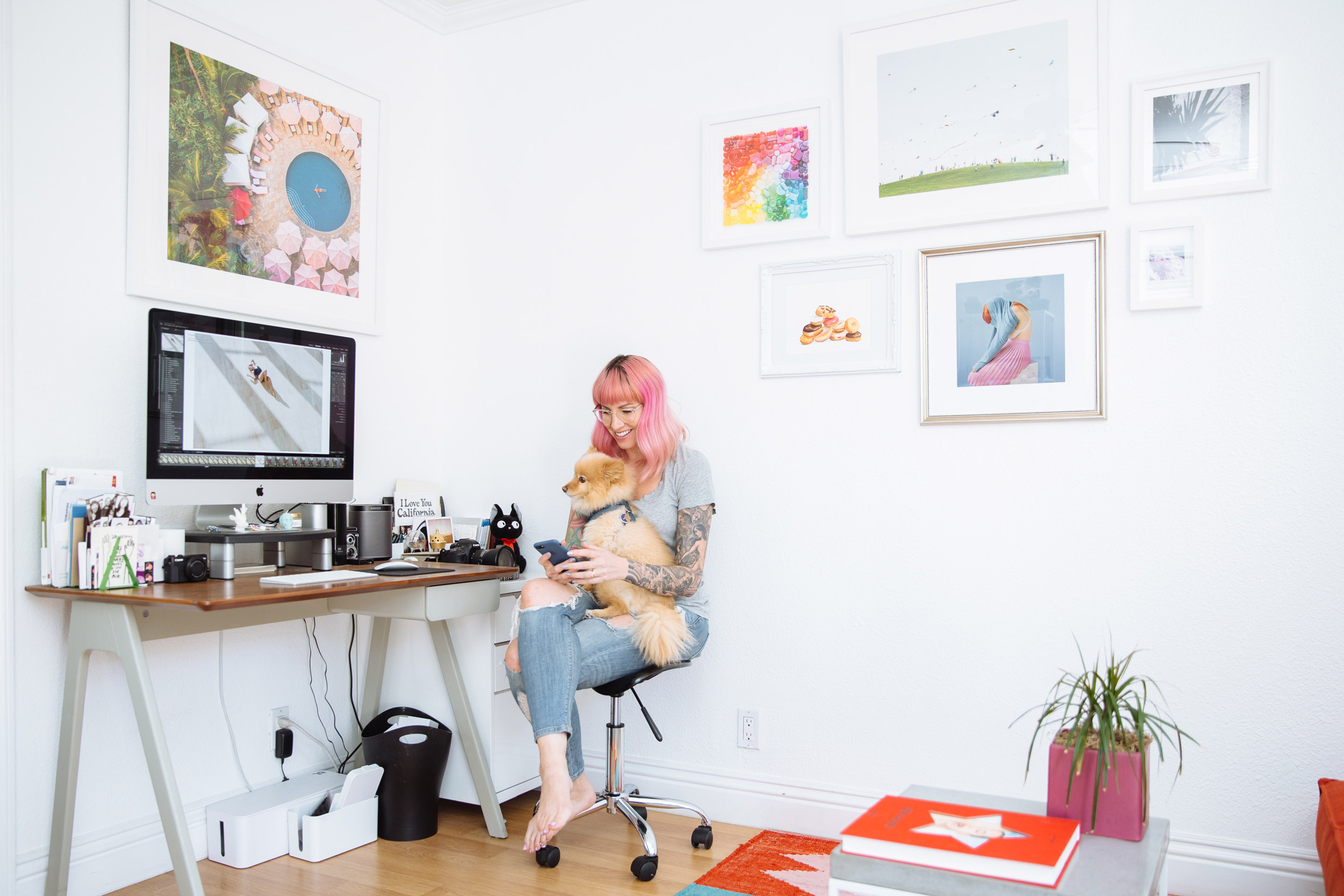
It’s incredible to look back at your life and see how it makes sense. Looking forward, we can sometimes feel like we’ve failed, but that can lead to things that might bring more happiness than we had imagined. Definitely. You know, I forced myself to be on my own. My mom is extremely successful and has always been my support net. If anything went wrong, she would help me. Also, I was thankfully on her insurance while I worked at two of the companies I mentioned. This path has always existed with a safety net and I’m not sure I’d be where I am right now without that.
Working at Instagram and being there during the acquisition and minorly benefitting from that—I do not own my own home, so let that be an indication that I didn’t do as well as everyone thinks I did—but it did give me a safety net for my first year as a full-time professional photographer. The path I took to get where I am now was the right path. I appreciate where I am and I work hard. I’m thankful that I had that support and security, and I know that not everyone is that lucky or privileged.
You were at Instagram for a few years before you left to pursue photography full-time. Tell me about that process in your mind: was there an “Aha!” Moment, where you fearful or putting it off, or were you eager? I really hated working at Facebook. I think that’s the place to start. I loved working at Instagram and I still love the community, but when we were acquired by Facebook, I was the most skeptical out of everyone on our 13-person team. I was the most resistant. I had no desire to take a bus to work. My dog had been our office dog for almost a year and I was so heartbroken to not have him around every day. It turns out that when you have anxiety and a little dog who loves you with all of his heart, you actually have an emotional support animal, and I didn’t realize that until later.
I also wasn’t sure that Facebook’s goals were my goals in terms of creativity. They told us that we made this magic and that our team must have done something right and they didn’t want to mess with it. But I wasn’t doing creative things. Every week I trained other teams to take over the side projects I had done when Instagram was a startup. I wasn’t focusing on creative things and I was losing my mojo. It became tiring and it was no longer fun.
I don’t tell this story a lot, but I think I’m going to tell you. The Instagram team was given bonus money as part of the acquisition, but we had to work at Facebook for a year to keep it. They gave us the money right away and told us we could spend it, but we’d have to pay it back if we quit before our year was up.
I loved my manager, who had been my friend since day one at Instagram, but he had a new manager who came from Facebook. To that new upper manager, I wasn’t doing good work. My attitude was crap—and I’ll agree—but I was doing a million things, which meant I wasn’t volunteering for stuff that they felt was important. They decided that I wasn’t doing my job well, which was the most heartbreaking thing to hear. I really tried to convince them that the transition was hard for me, but that in a couple months I’d probably be back to doing the creative stuff I was passionate about. They decided that that wasn’t good enough.
The new manager wanted to put me on a project plan. In the corporate world, that means that you have a three-month period to prove you can do your job well. If at the end of the period, you’re unsuccessful, then you’re asked to leave. The way it was timed, I would have lost all of my bonus money, I wouldn’t have vested any stock, and I would have had to walk away paying Facebook cash. So I asked if I could keep my bonus, my safety net, if I left right then because I had already put so much heart and soul into the company. They agreed and I stepped down.
“…if you’re lucky enough for your passion to become your main career, try to have something else as a side passion. Putting all of your heart and emotions into the thing that fulfilled you before can make it unfulfilling really quickly.”
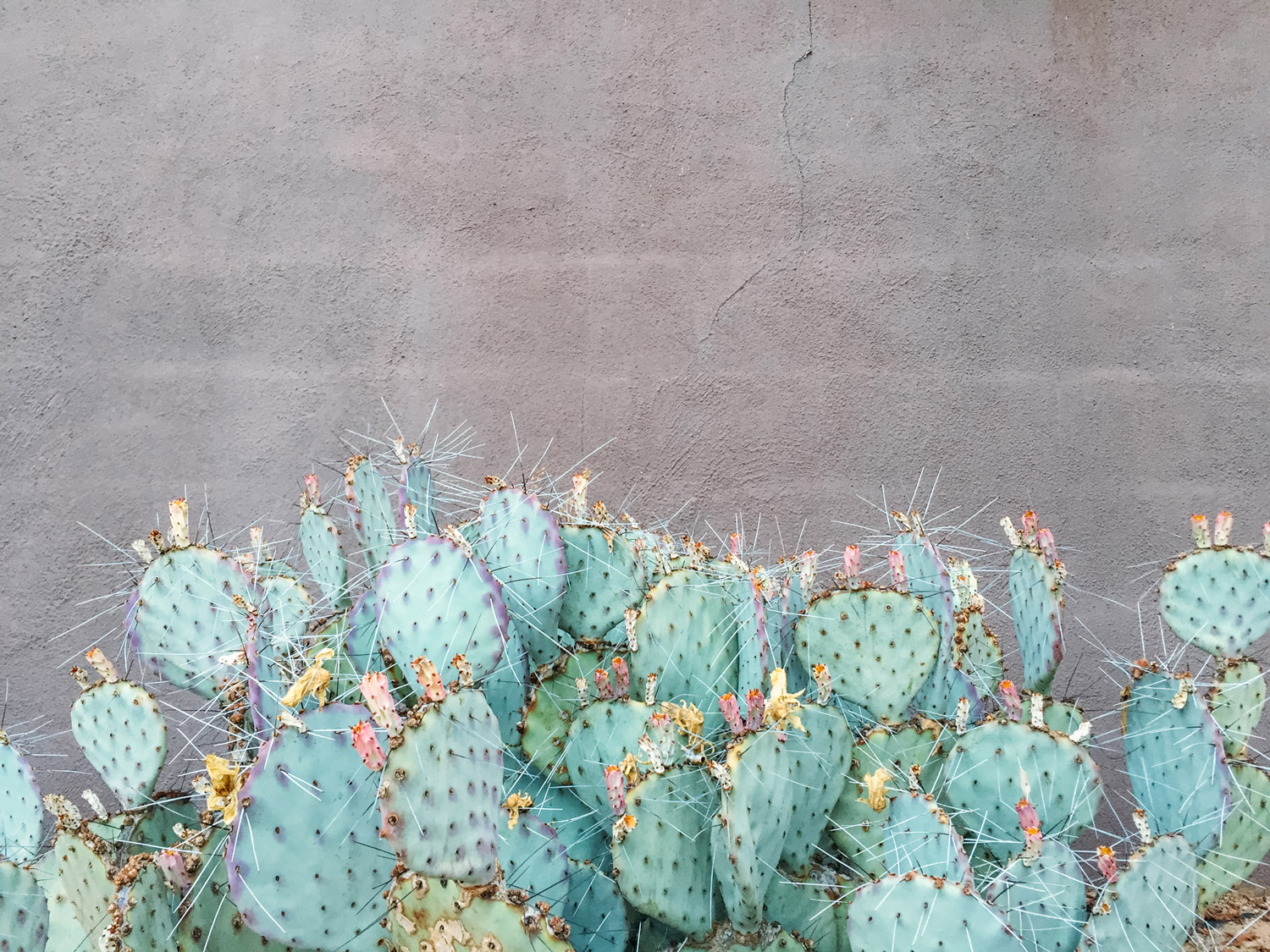
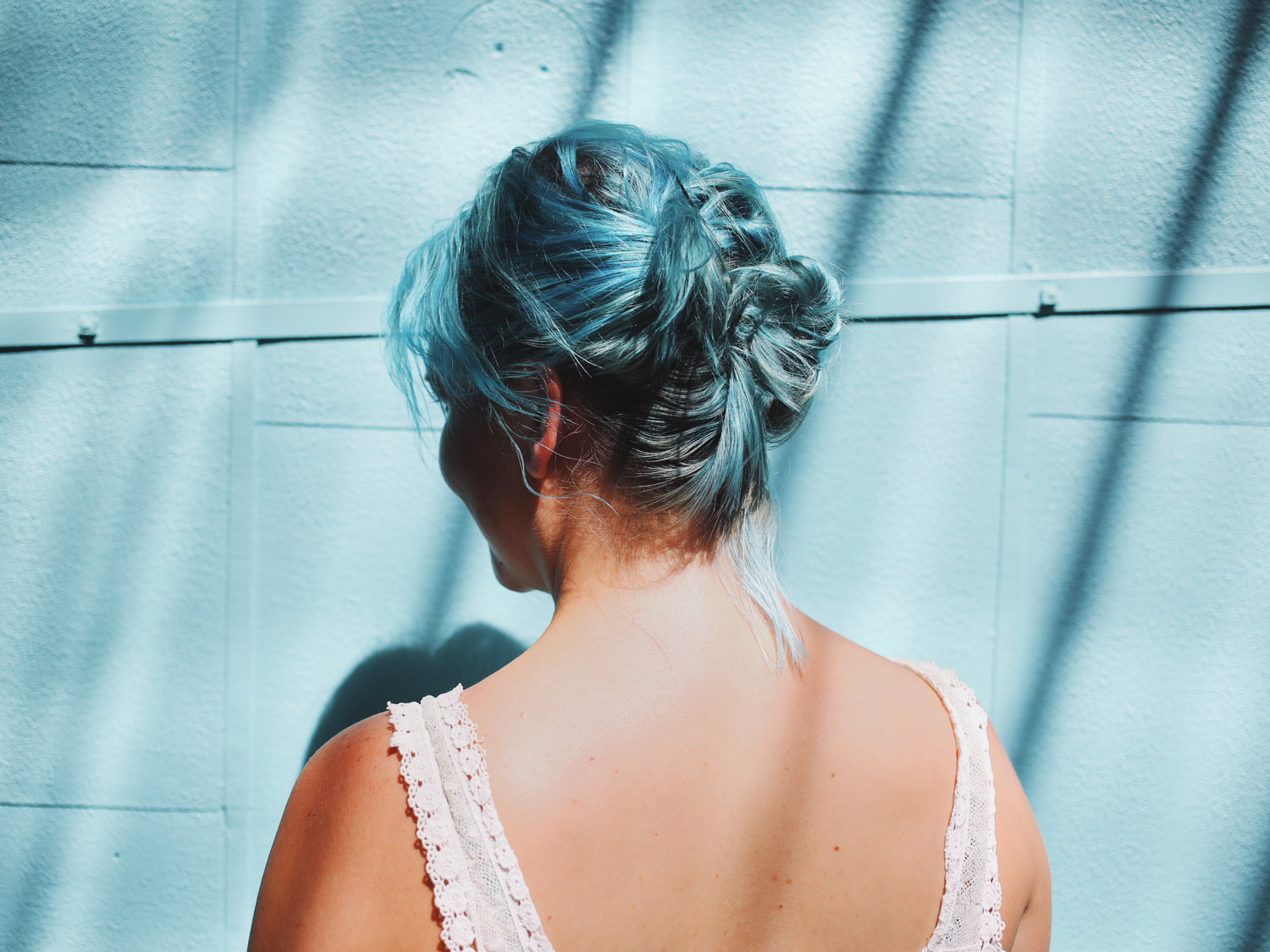
I can’t imagine the emotions you felt at the time. What was that like? I wasn’t ready. I did not want to leave the Instagram community. I did not want to leave my job. Even though it was boring and I didn’t like what I was doing, I knew there was a light at the end of the tunnel. I felt like I could make an attitude shift, but they weren’t ready to give me that time. It’s corporate culture, and that’s why I never worked for a corporation. So I decided to leave with a small safety net. It was heartbreaking and painful.
I was forced into this new world and I was scared and hurt. I reached out to the photographer Michael O’Neal, who is one of my closest friends. I told him my experience and the decision I had to make. He said to me, “I know I’ve talked to you about this photography collective called Tinker Street*. Let me set up a meeting with Jesse, the founder. I want you to join. I think having someone who has experience building the community at Instagram within a new agency that is going to essentially focus on creating better, more beautiful, more community-focused branded content is the best decision we could make.” I was crying and he told me not to worry because he had my back and would catch me. It was one of the best and most pivotal moments in my new career of becoming an artist. I met with Jesse and felt like everything was going to be okay.
Were you getting paid for photography at that time? I had been approached by companies to take photos for perks. I didn’t take any jobs while I worked at Instagram, but after I quit I went to Iceland on Icelandair’s dime, got a huge discount on their hotels, and drove around the entire country on Ring Road. The experience was their payment, even though I know better now. At the time, it felt like an awesome opportunity to go with my now-husband to this country I’d already been to and knew I loved right after I left Instagram.
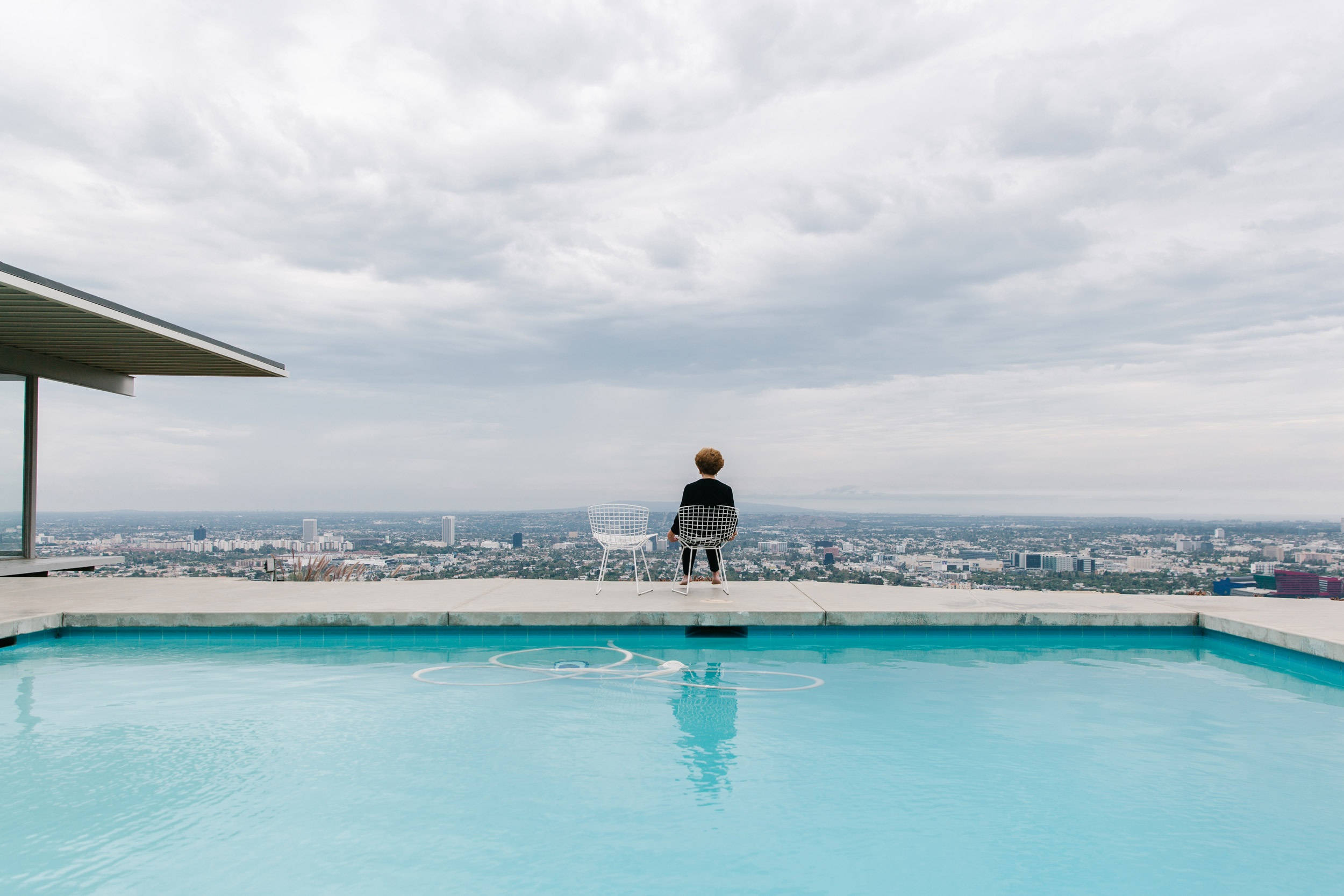
You’ve had such a journey to get to where you are. It’s now come full circle for you back to photography. Are you creatively satisfied? Like I mentioned earlier, if I’m not in a good place personally, I’m going to be disconnected from my art.
I got married last year and that put me in such a strange place because I watched my mom find the love of her life and lose him. I watched the fallout from it, and I watched her struggle to date and then be completely content being single. I formed pretty strong opinions and feelings around that.
I started dating my husband, Anthony, at the start of my time at Instagram, so those journeys were intertwined. That Iceland trip is where he proposed. We moved to Los Angeles because neither of us worked full-time jobs anymore, which made San Francisco unsustainable with freelance income. A year later, we got married and that took a huge toll on my creative brain, but struggling with the concept of loss and the fear of losing this person who is my life partner and the love of my life took over everything.
I joke about this, but when people asked me what personal projects I was working on last year, I said me. I was my personal project. There’s nothing wrong with that. I was burnt out and scared and had to go to therapy to work through these new feelings surrounding the large theme of my life, which is the loss of my father. I had to work through those issues in a new way. I stopped going to therapy at the end of last year and am in an amazing place now. I’m flourishing in LA as a creative and have surrounded myself with the most incredibly talented women photographers. I am so personally fulfilled and, as a result, that’s fueling my creative drive and desire to make beautiful work.
I like that. I have one last question for you. What advice would you give to a young person starting out—or are there any insights you’ve had over the years? The biggest thing I wanted to hear when I was younger is that if something you’re excited about doesn’t work out the way you expect, it’s okay to roll with it. Let life take you where it wants to. Obviously, having some control is important. This means that for me as a photographer, I’ll do something different if this stops paying the bills or being fulfilling. I won’t consider it a failure.
That’s the lesson my mom taught me and the thing I wish I could tell people when they feel disappointed that a creative endeavor didn’t work out. Try it, live in it, enjoy it when it’s happening, but if it doesn’t work out, that’s the way it’s supposed to be. Don’t beat yourself up over it. I did that a lot in the early days, even with jobs I didn’t really care about. I think part of that pressure comes from society and I wish it wasn’t that way.
I would also say that if you’re lucky enough for your passion to become your main career, try to have something else as a side passion. Putting all of your heart and emotions into the thing that fulfilled you before can make it unfulfilling really quickly. That’s something I’ve struggled with, and still struggle with.
I’ve tried to turn my focus on getting involved in my local community. For example, I did a project with the salad restaurant Sweetgreen. They have a local program to teach fourth and fifth graders about sustainable food and sustainable living. I volunteered to take photos for that because it’s an amazing project. I also volunteer as a photographer for the Los Angeles Fire Department’s events. Whatever your’e doing, if there’s a way to turn your passion into your career, then do it. But have something else that excites you as a side passion so you don’t get burned out.
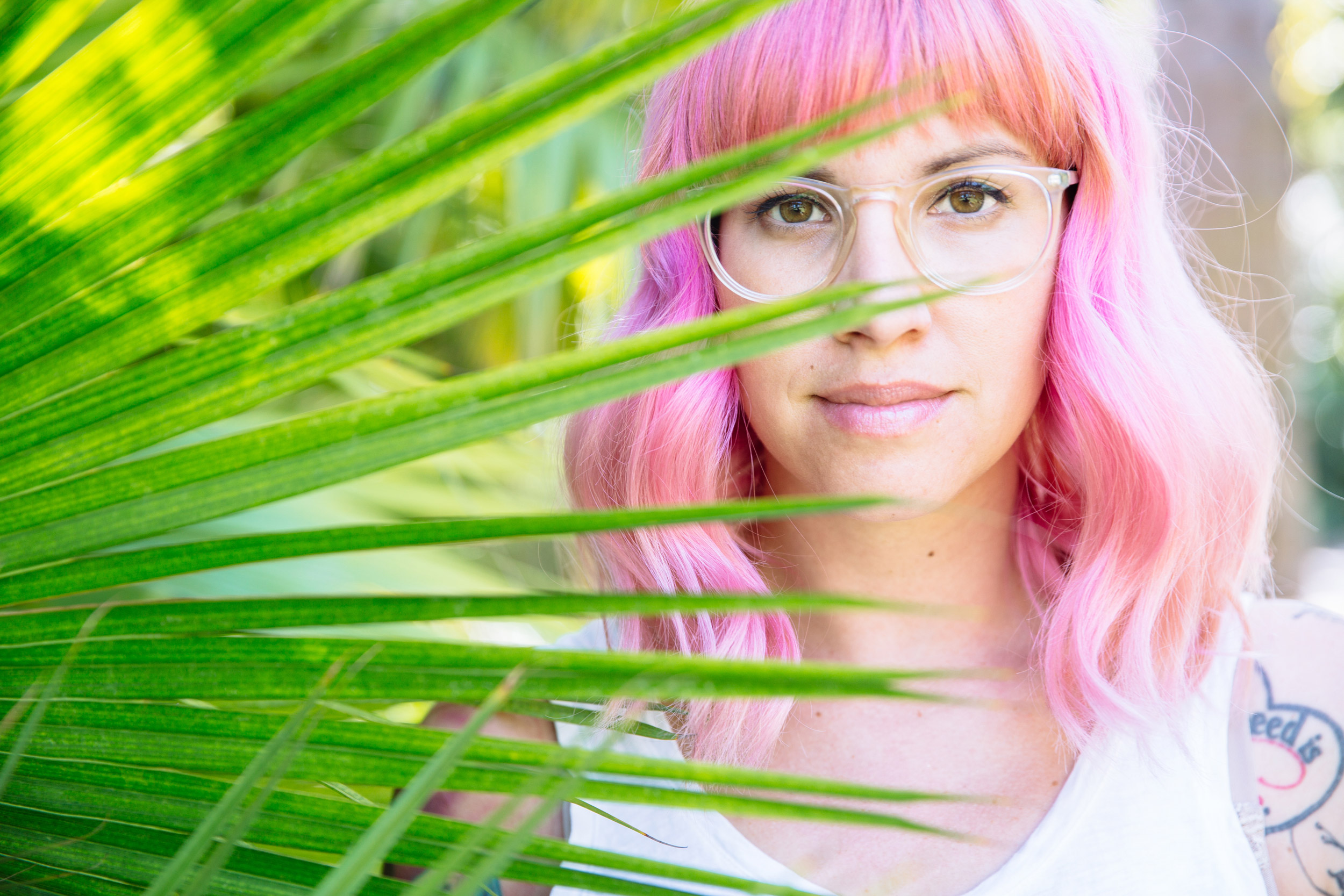
“I’m flourishing in LA as a creative and have surrounded myself with the most incredibly talented women photographers. I am so personally fulfilled and, as a result, that’s fueling my creative drive and desire to make beautiful work.”
